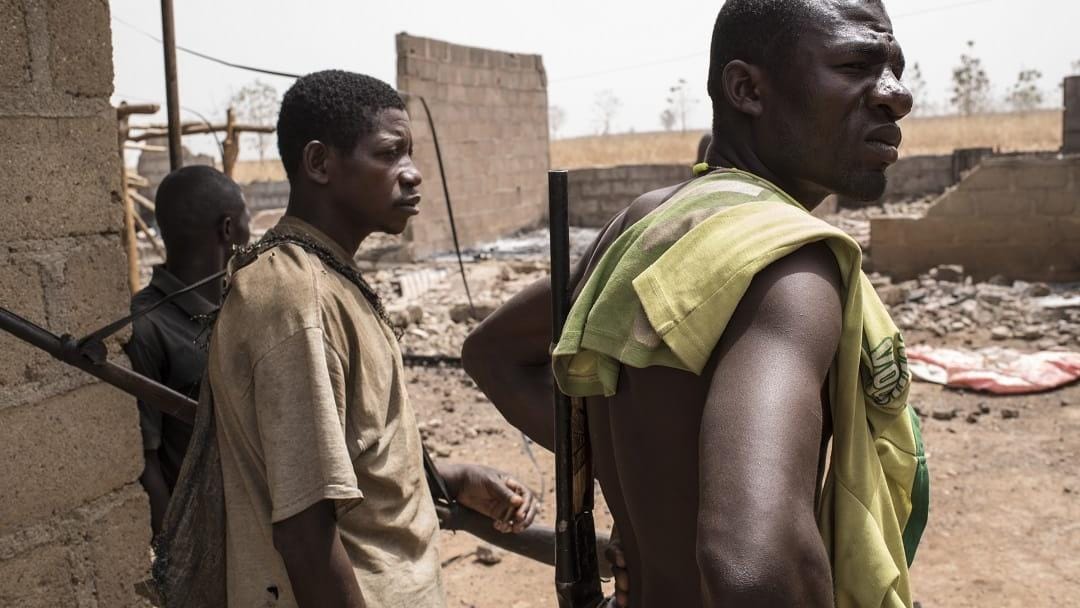There are no products in your shopping cart.
| 0 Items | £0.00 |


AS many as 300,000 Nigerians have now been displaced from their homes in four states across the country as a result of the murderous activities of armed Fulani herdsmen according to survey just published by the Institute for Peace and Conflict Resolution.
Over recent years, Nigeria has been reeling from the effects of violence at the hands of herdsmen, who cause mayhem as their livestock roam the country, destroying farms. When local farmers protest, the herdsmen react brutally, attacking their communities with AK47 assault rifles, leaving dozens or sometimes hundreds dead.
Of late, the herdsmen have expanded their operations branching out into other forms of criminal behaviour like kidnapping, pillaging and rape. Nigeria's Middle Belt has borne the brunt of the attacks and according to Joseph Ochogwu, an associate research professor with the institute, the conflict, which was primarily a contest over land and water, was threatening the country’s food security and stability.
Their research paper titled Trends and Dynamics of Conflict between Farmers and Pastoralists in Nigeria’s Benue Valley, listed Benue, Plateau, Nasarawa and Taraba states as the most affected. According to Professor Ochogwu, this has led to deaths, loss of livelihoods, displacement and the disruption of the economies of the affected states..
Professor Ochogwu said: “The current crisis has assumed ethnic and religious dimensions. From 2001 to 2018, about 60,000 deaths were recorded in multiple clashes and it is estimated that more than 300,000 were displaced across states, 176,000 in Benue, about 100,000 in plateau, and 100,000 in Nasarawa and about 19,000 in Taraba.
“These displacements were mainly due to the surge of attacks and counter-attacks by the headers and farmers communities. In Benue alone, it is estimated that the crisis led to more than N400bn economic losses resulting from destruction of properties.
“Between 2017 and May 2020, 645 attacks were carried out, 2,539 people were killed and 254 kidnappings were recorded in various states in Nigeria." He noted that between 2018 and 2019, access to water and grazing land became more competitive.
This, Professor Ochogwu noted, led to frequent arguments, adding that there was distrust due to differences in ethno-religious and cultural identities and values. He said governments at all levels should work together to deploy a joint task force comprising the army, navy, air force, police, para-military and civil institutions, to restore law and order and build the population’s confidence in the government.
According to him, the research recommended that development partners should partner with the government and community-based organisations to ensure that women are mainstreamed in peace building programmes. He said the governments in key states should also work with civil society organisations, media organisations, gender and peace building experts to develop programmes using conventional media and social media among others to deconstruct social norms.
This research was carried out by Zinariya Consult, a development and policy advocacy firm, with support from Global Rights and Open Society Initiative for West Africa. Professor Ochogwu urged the federal government to order the investigation of all recent violence between farmers and pastoralists and expedite the trials of individuals or groups found to have participated, sponsored or involved in violence.